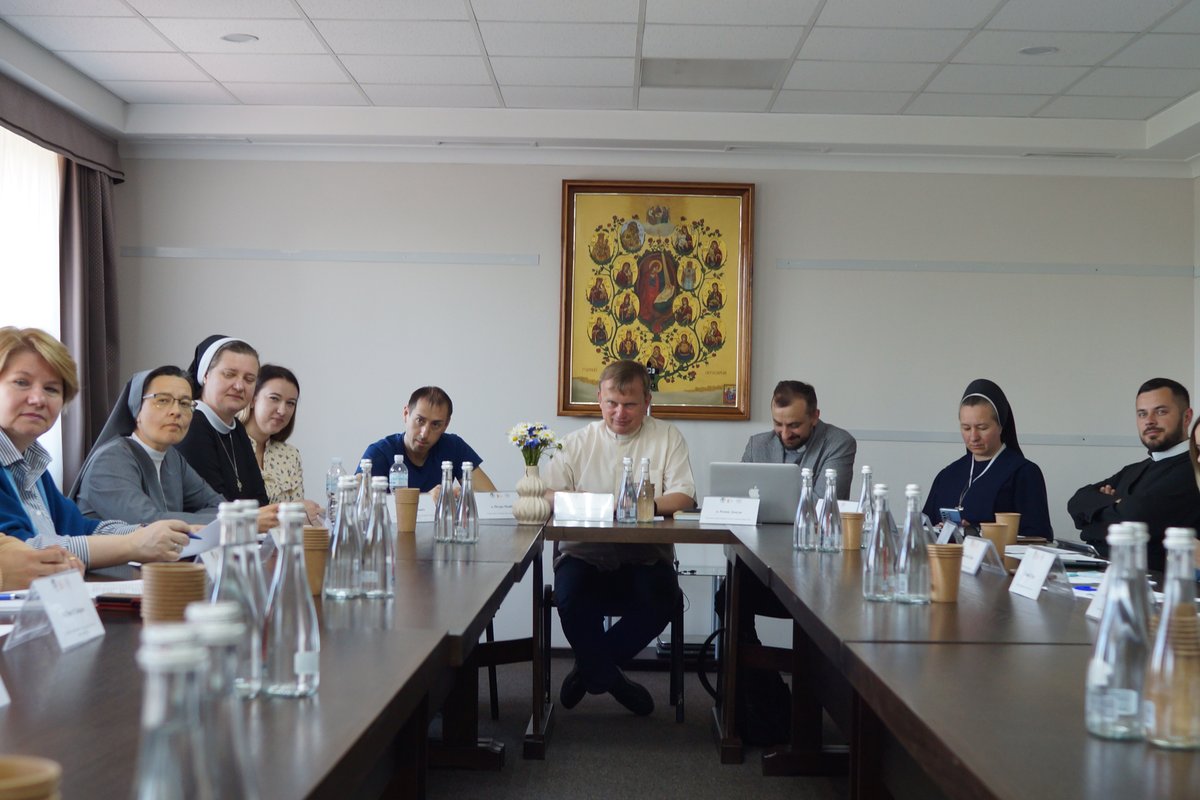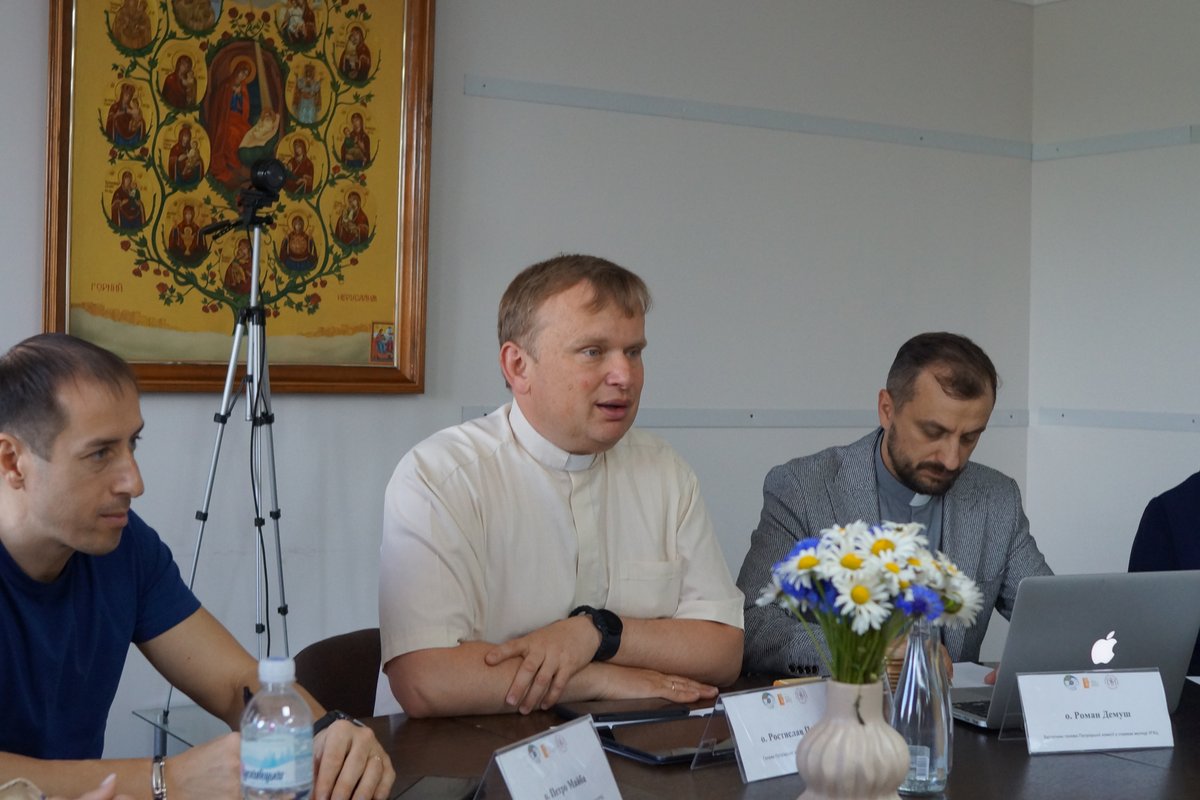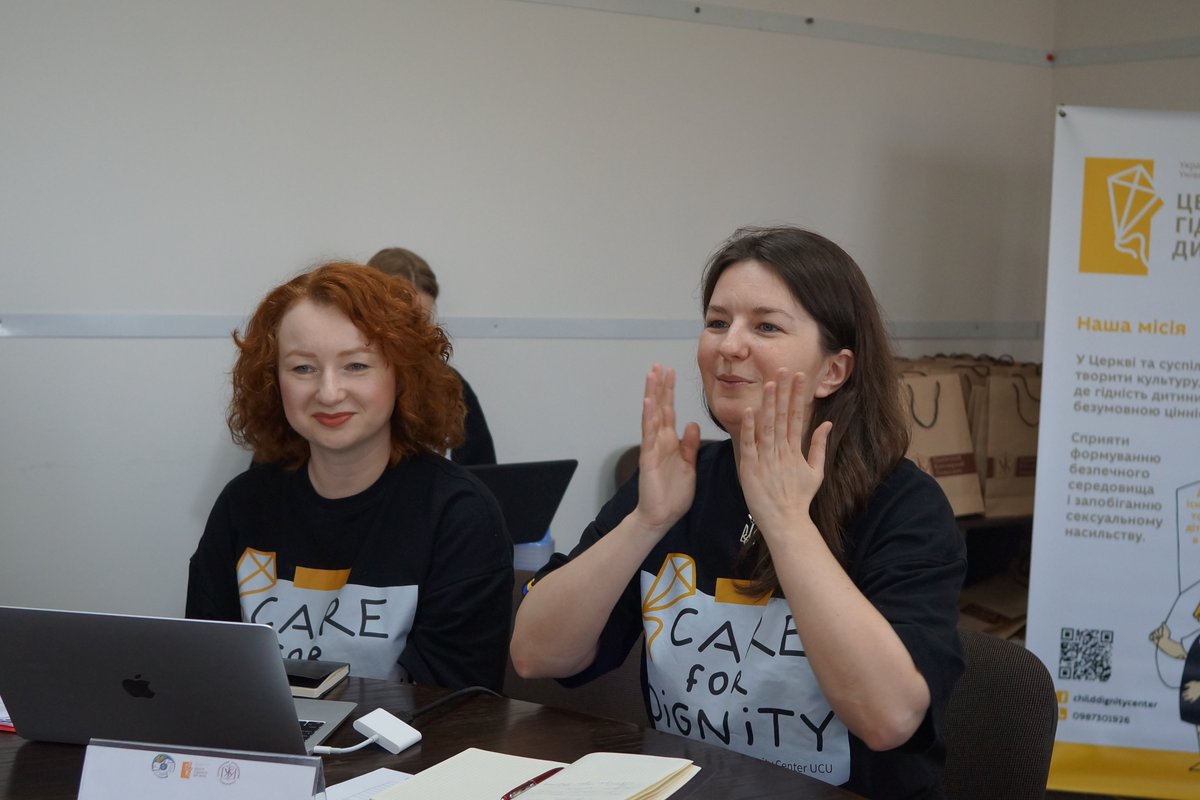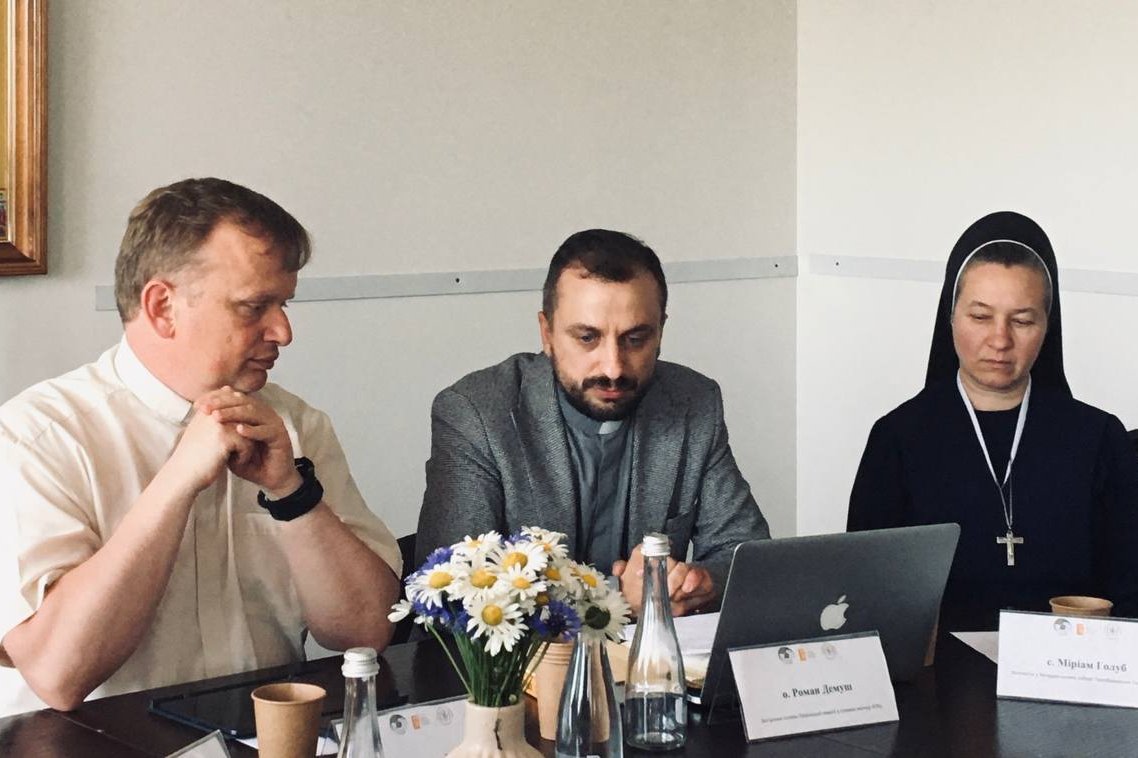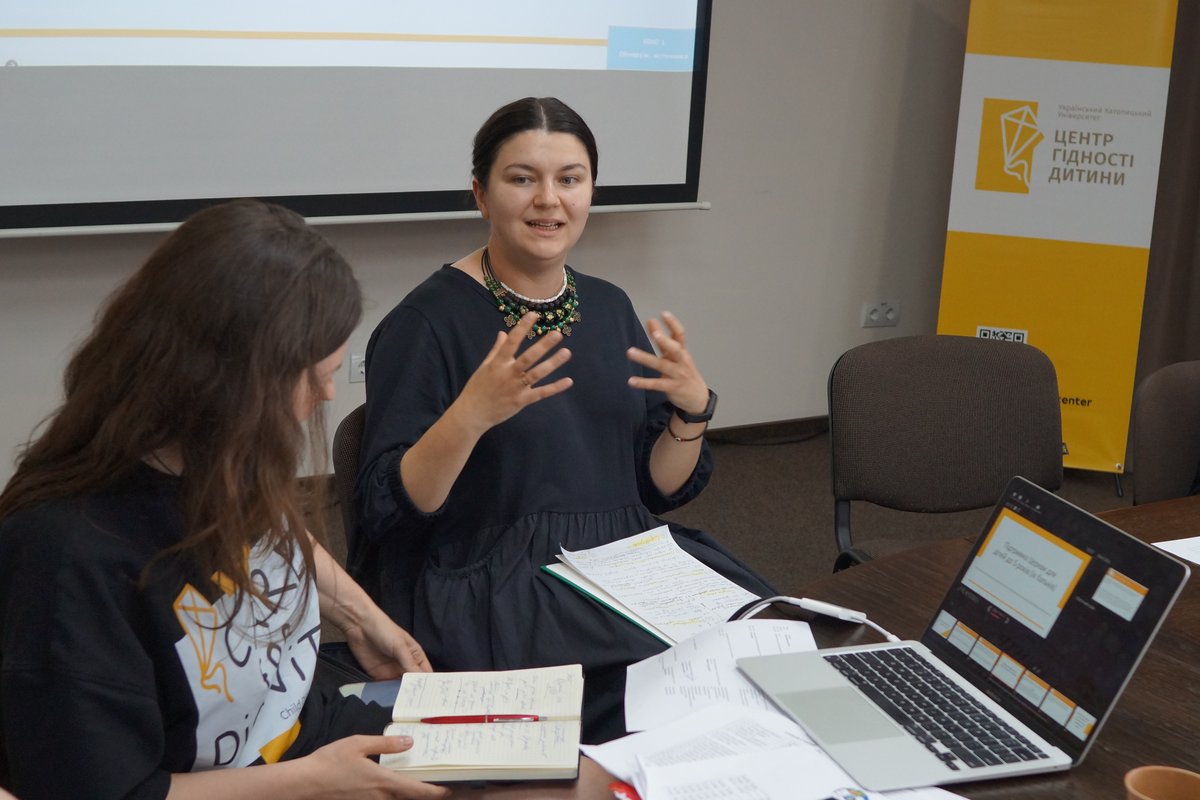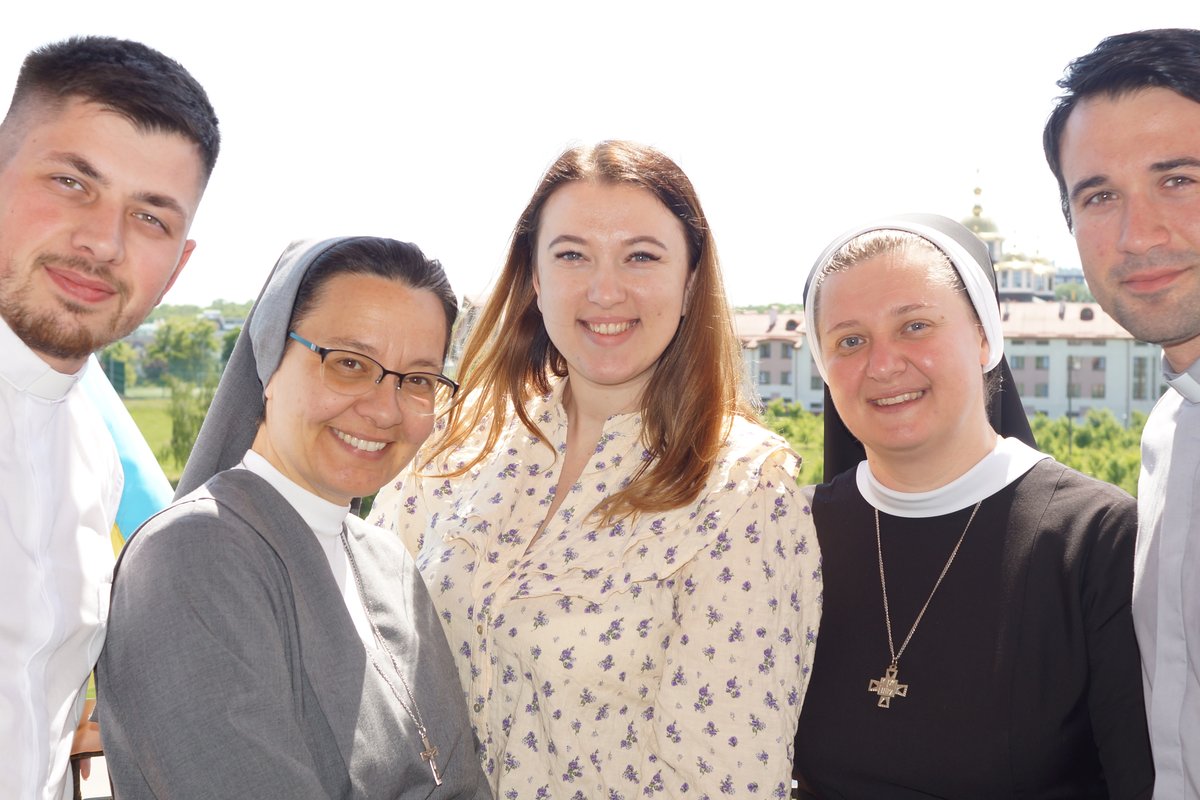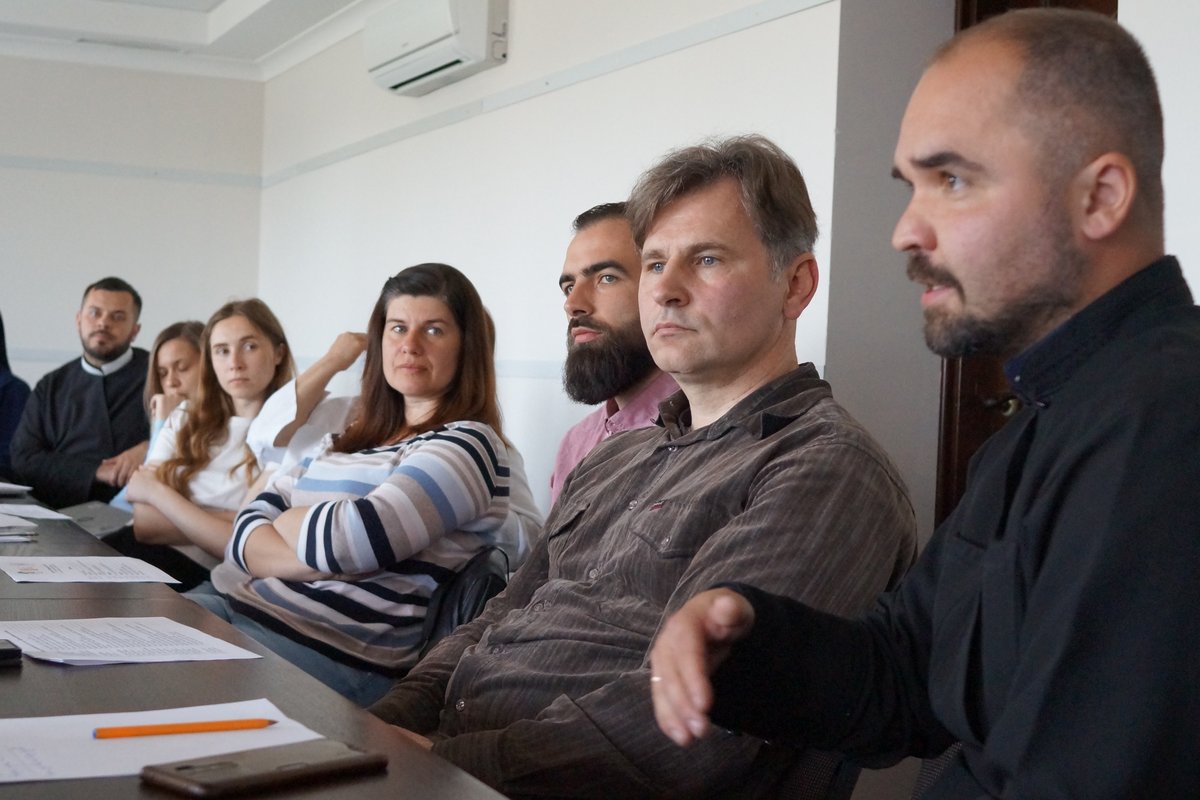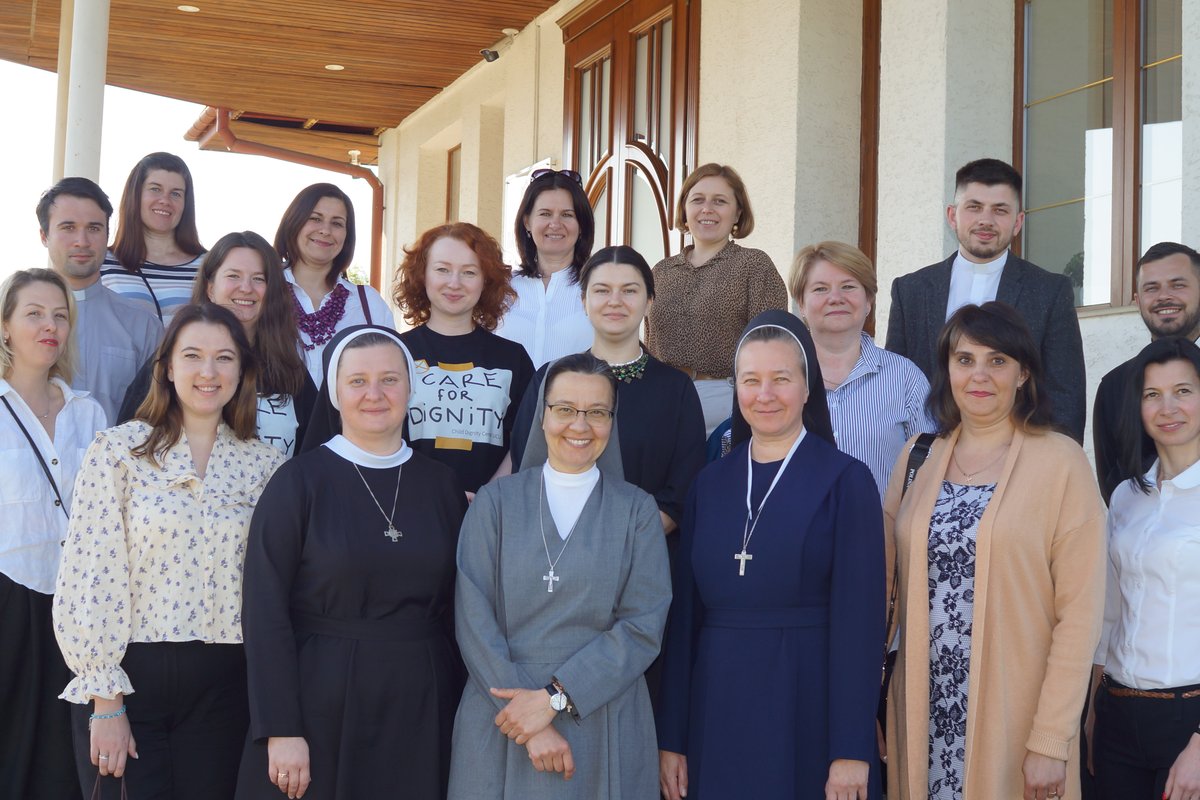"Child-friendly church": main points of discussion
The Patriarchal Commission on Youth of the UGCC, together with the Center for Child Dignity of the Ukrainian Catholic University, organized a discussion on Child Friendly Church on the occasion of Children's Day. On May 30, at the Patriarchal House in Lviv, we spent the entire day together with clergy, representatives of Catholic education, mothers, public figures, and catechists looking for ways to attract children to church and to make their stay there safe and interesting.
- the church's experience in involving children in church life;
- children and youth are involved in the church community as equal members;
- church support for families with children;
- church support for children under 5 (and their parents);
- church support for teenagers and their involvement in parish life.
The participants also shared their experience of involving teenagers in parish life and discussed where the church's work needs to be strengthened. We publish the main quotes of our speakers:
Father Rostyslav Pendiuk, head of the Patriarchal Commission on Youth of the UGCC:
The point is that the church should be child-friendly, but at the same time the child should realize that it is a church. And so that this would encourage them to make a conscious choice in adulthood: I want to be part of the church because this environment was friendly to me, and I want to belong to it. Previously, we didn't care about the child's choice because we realized that he or she didn't have many options. Now we realize that at some point a child can say goodbye.
Khrystyna Shabat, head of the Center for Child Dignity:
One of our topics is "Children and youth are involved in the church community as equal members." And the key here is equal - when we understand this and know how to communicate with children. But every grandmother in the church knows what to say to a child: whether her skirt is too short or how she should hold her hands. And this creates a lot of conflicts. The mediator between a child and another person should be a responsible adult. At school it is a teacher, in church it is a priest. And it seems to me that the role of the priest is very important-to take on this role of moderation during all these conflicts.
Father Roman Demush, Deputy Head of the Patriarchal Commission on Youth Affairs of the UGCC:
Speaking of cooperation between parents and the church, it is important to have a holistic picture of the parish. When we talk about working with children, we often want a methodology to follow. But there is no methodology, it does not exist. I am convinced that the pastoral care of children and youth is nothing more than the pastoral care of ways. There are three things. The first is to be able to apply them, to try them, the second is assistance-your presence, and the third is the organization of leisure time.
Maria Baitsar, psychiatrist, psychotherapist at the Family Circle Center:
We need to know how to make the world safer for children. To do this, we need to know the basic needs of the child. There are basic needs: safety and a safe environment. And it is very difficult to talk about it during the war, but children will develop and grow only in a safe environment, and it is important for us to create it as much as possible.
Before organizing the discussion, we conducted a survey among 60 lay people and clergy and came up with 8 goals that we should work on together to create a safe and friendly environment for children in the church:
- The child is an asset to the parish and has the same dignity as adults;
- the parish has a list of procedures for the protection of minors;
- staff and volunteers who work with children are trained to do so;
- the church building offers a safe environment;
- there are nurture groups for children and youth;
- the church supports children under 5 years of age;
- young people are involved in the church community as full members;
- the church is working to expand its pastoral capacity.
